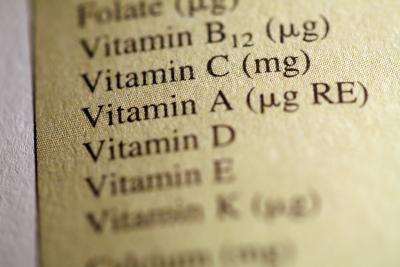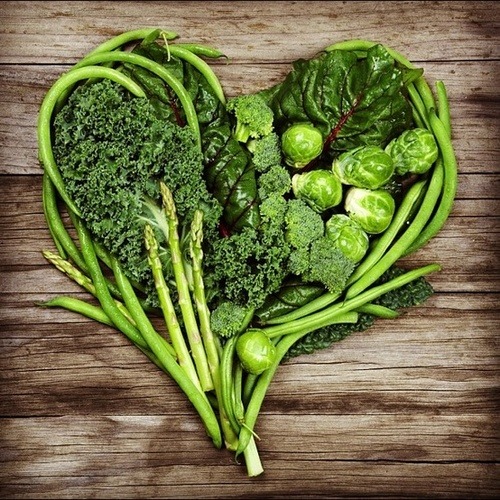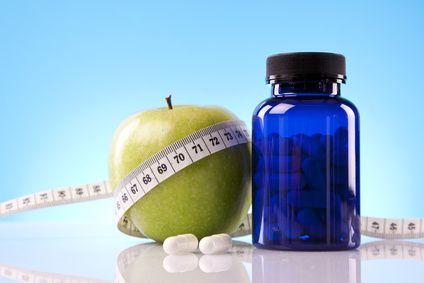1. DRINK WATER & FORGET ABOUT EVERYTHING ELSE
If you want to lose weight, apart from
tea and coffee perhaps, cut out all other beverages. Drinks are
incredibly high in sugar, full of calories but don’t fill you up. In
other words, you’re loading up on calories and don’t even have anything
to show for it. This includes fruit juices, which, while high in
nutrients are also high in calories. You can juice your vegetables, but
you must eat (not drink) your fruit. With regards to diet soda, yes they
are low in calories, but can you name any of the ingredients on the
can? While diet sodas might not be bad for your waist, who knows how
good they are for your health?
2. OPT FOR NON-FAT FOOD CHOICES
Swap your milk, cheese, yogurt and so on
for non-fat or low fat alternatives. Fat is high in calories. Every 1
gram of fat you eat contains 9 calories, which means it adds up quickly.
A couple of weeks after changing to low-fat, you wont even remember the
difference in taste, but you will appreciate the difference to your
waist and your weight loss efforts.
3. SWAP YOUR REGULAR CHEESE
Swap your regular cheeses made from cow’s milk with goats cheese. The calories in cheese are highly variable. Goats cheese contains 40% fewer calories than regular cheese.
4. TWEAK YOUR FAVORITE FOODS
There is a healthier, lower-calorie
alternative to you favorite dish. Yes, it will taste a little different,
but it means you don’t have to give it up entirely. You’ll find you
might be able to cut your calories by half if you try and help you lose
weight with greater ease.
 5. IF YOU CAN’T UNDERSTAND – OR PRONOUNCE – WHAT’S ON THE TIN, DON’T EAT IT
5. IF YOU CAN’T UNDERSTAND – OR PRONOUNCE – WHAT’S ON THE TIN, DON’T EAT IT
Go for natural whole foods. Start to cut
down on fast-foods, ready-made foods and foods with ingredients you’d
never find in nature. Basically, go back to basics. You’ll probably not
only cut down on calories, but on spending. Instead of a chocolate bar,
make your own trail mix – throw together a few raisins and nuts.
6. EAT MORE PROTEIN
Protein is highly filling, but
relatively low in calories. In fact, this is what the Atkins Diet is
banking on. Eating plenty of
lean protein means that you can cut back on calories and lose weight without feeling hungry.
7. EGG-WHITE OMELET FOR BREAKFAST
Egg-whites are high in protein, but low
on fat and low on calories. You’ll feel fuller for longer than a
breakfast with a similar number of calories.
8. DON’T FILL UP.
During meals don’t aim to feel “full”,
eat until you don’t feel hungry, i.e. satiated. The two are not the
same. Your stomach is relatively small – merely the size of a fist –
meaning you don’t need to eat much to fill it comfortably. And your body
can only deal with a limited amount of food at any one time.
Furthermore, if you regularly eat until you’re full, the more you
stretch your stomach, and the more food you have to eat to get that
feeling of fullness. If you feel gorged, bloated or lethargic, you are
in all probability either eating at the wrong time or consuming too much
too much food. Aim for no more than 600 calories per meal to maximize
fat-burning.
9. EAT ONLY FROM A PLATE
Eat only from a plate, and whilst seated at a table. Don’t eat standing or on the go.
 10. NO TO ALCOHOL
10. NO TO ALCOHOL
Yes you want to have a good time, but do
you need alcohol to do so? If the answer is yes, perhaps you should cut
it out for a while. In any case, one Mojito equals 160 calories – and
that’s a low calorie cocktail! The numbers tally up quickly and before
you know it, you’ve drank a whole weeks worth of gym time in one
weekend. Plus alcohol increases cortisol levels and cortisol build belly
fat and may slow your metabolism by 70%. Worth it? I think not? If
you’re serious about losing weight, cut out alcohol completely.
11. GO MEDITERRANEAN
Eat a foods rich in monounsaturated
fatty acids (MUFA), such as olive oil, nuts and avocados. Not only have
they been shown to aid weight loss, but they also trim belly fat.
12. DON’T POUR, SPRAY
Instead of pouring oil into the pan, use
spray oil. Each squirt contains 1 calorie, while one table spoon of oil
contains 120 calories. That adds up over the course of a year. Making
that small change for just once a day works out at a saving of 43,435
calories a year or a weight loss of 12lbs (approximately 6kg).
13. SUPPLEMENT WITH FISH OILS
This awesome food supplement can help
with weight loss and has a bevy other other beneficial health effects.
Research suggests anti-cancer effects (esp. breast, colon and prostate
cancer), a reduced risk of depression and suicide and a neuro-protective
effect against Alzheimer’s and Parkinson’s. In women fish oil may
promote prevent pre-term labor and delivery fetal and infant brain
health, reduce the infant’s sensitization to common food allergens
effects particularly for women and confer long-term benefits on specific
aspects of neurodevelopment in infant. In addition, numerous studies
show that fish oils can significant reduce menstrual cramps.
14. SUPPLEMENT WITH VITAMIN D
There is evidence that Vitamin D can
help you lose weight. A 2010 study published in the American Journal of
Clinical Nutrition, suggests that increase vitamin D levels (and intake
of dairy-derived calcium) may increase weight loss while dieting. While a
2007 study in the Archives of Internal Medicine found that Vitamin D
may prevent the weight gain that commonly occurs in middle-aged women.
Indeed, supplementing with Vitamin D in winter, may help stave off the
winter weight gain to which most of us fall prey
15. SUPPLEMENT WITH VITAMIN C
Insufficient amounts of the vitamin may
hinder weight loss. A study at Arizona State University found that
consuming sufficient amounts of vitamin C burn 30% more fat during
moderate exercise compared to those who consume too little amounts of
Vitamin C. Furthermore, insufficient vitamin C levels are associate with
increased body fat and greater waist measurements.
16. TRY C.L.A
It’s the holidays? Supplement with CLA (
Conjugated Linoleic Acid). Research shows that CLA can help prevent weight gain, making it ideal for periods when overindulging is inevitable.
17. CAFFEINE
Drink coffee or even better –
anti-oxidant rich green tea. Research shows that drinking 5 cups of
green tea per day increases metabolism by 20%, helping you burn fat and
lose weight, while 2 cups of coffee will also boost metabolism. Plus,
there is evidence that daily coffee intake protects against Alzheimer’s
disease.
18. DON’T TORTURE YOURSELF
Don’t bring high calorie snacks and
treats into the house, you’ll always be having to fight temptation.
Firstly, constantly fighting is tiring. Secondly, you will eventually
give in. Thirdly, you’ll feel guilty afterwards and may or may not end
up binging or giving up on your weight loss efforts all together. So
make losing weight easy on yourself. Indulge in your favorite treats
away from home, such as during a meal out with friends, your local
coffee shop or ice cream parlor.
19. ADD MUSTARD
Scientists at Oxford Brookes University
believe that by simply adding a tablespoon of mustard to your meal you
can reduce belly fat by a whopping 20%.
20. SPREAD HORSERADISH ON YOUR SANDWICH
This topping has been shown by researchers from the University of Copenhagen to help burn fat and reduce hunger pangs.
21. ADD A TOUCH OF LEMON ZEST TO YOUR MEAL
According to a study published in The
Journal of Nutrition lemon zest may prevent cravings, because, once in
the stomach the fibrous pectin found in the lemon peel transforms into a
sticky gel that slows that absorption of sugar. Decreased cravings
means easier weight loss.
22. SPICE-UP YOUR MEALS WITH TURMERIC
The active ingredient in turmeric is
curcumin, which, according to The Journal of Nutrition, increases fat
burning. Researchers at Columbia University believe that consuming
approximately 1 teaspoon of turmeric a day may help you achieve
significant weight loss, even in the absence of dieting.
23. TURN UP THE HEAT WITH PEPPER
Research suggests that, consuming a
small amount of hot pepper half and hour before eating decreases hunger
and calorie consumption by about 10%, aiding weight loss.
24. TRY MUSHROOMS
One study shows that people who ate a
mushroom-based starter felt just as satisfied as when eating the same
dishes – but made with beef. However, the mushroom starter contained
substantially fewer calories and fat.
25. EGGS FOR BREAKFAST
Research shows that people who eat eggs
for breakfast feel fuller for longer. A study published in the
International Journal of Obesity showed that dieters who eat eggs for
breakfast lose twice as much weight as those who eat a calorie
equivalent breakfast consisting of bagels. What works for breakfast
works for other meals too, as eggs are protein rich and incredibly
satiating.
26. OATMEAL BEFORE EXERCISE TO BOOST FAT BURNING
Research published in the Journal of
Nutrition suggests that consuming a meal consisting of “slow-release”
carbohydrates (e.g. oatmeal, muesli or bran cereal), prior to exercising
may help you burn more fat. The study showed that calorie burning
during exercise was nearly twice that of exercising after eating a meal
made up of fast-release carbohydrates (e.g. cornflakes, white bread,
jam). As the name implies, “slow-release” carbohydrates are more slowly
digested, such that blood sugar levels don’t spike as high, which means
that insulin levels are not as high either. Since insulin is a fat
storage hormone, lower levels of insulin may help you lose weight. Read
more about the type of carbohydrates here.
27. CHEW EVERY MOUTHFUL THOROUGHLY
A study published in the American
Journal of Clinical Nutrition asked participants to chew one serving of
almonds 10, 25 or 40 times. Participants who felt fuller longer, were
those who chewed the most.
28. SWAP REFINED GRAINS FOR WHOLE GRAINS
A study in the Journal of Nutrition
found that this simple switch might help reduce total body fat and help
you lose belly fat. Researchers found that adults who ate about 3
servings of whole grains a day had less body fat and less belly fat fat
than participants who ate less than a 1/4 of a serving. Whole grains act
to aid weight loss by promoting satiety. The fiber in whole grains
helps you feel fuller though eating fewer calories. Whole grains are
thought to slow digestion or absorption, resulting in lower insulin and
glucose levels, which favor the fat burning instead of fat storage.
Whole grain fiber is particularly effective at helping you feel full and
may help you feel fuller than eating fiber found in other foods stuffs
such as fruit and vegetables. Aim for at least three servings of whole
grains daily (one serving equals 1 cup of whole-grain cereal or a slice
of whole-wheat bread)
29. DON’T BANISH SWEETS
Switch high-calorie sweet treats for
more nutritious, lower-calorie versions. According to a study published
in Proceedings of the National Academy of Sciences, prohibiting sugary
foods entirely could lead to overeating. It is thought that banning
sweet foods stimulates the release of a polypeptide hormone and
neurotransmitter called corticotropin-releasing factor (CRF), which is
linked with higher stress levels and may decrease your motivation to eat
healthily, increasing the likelihood of binging on junk foods.
30. START WITH SOUP
According to a study published in the
journal Appetite, people who start their meal with vegetable soup
consume 20% fewer calories over the course of their entire meal.
31. ANY EXERCISE IS BETTER THAN NO EXERCISE!







